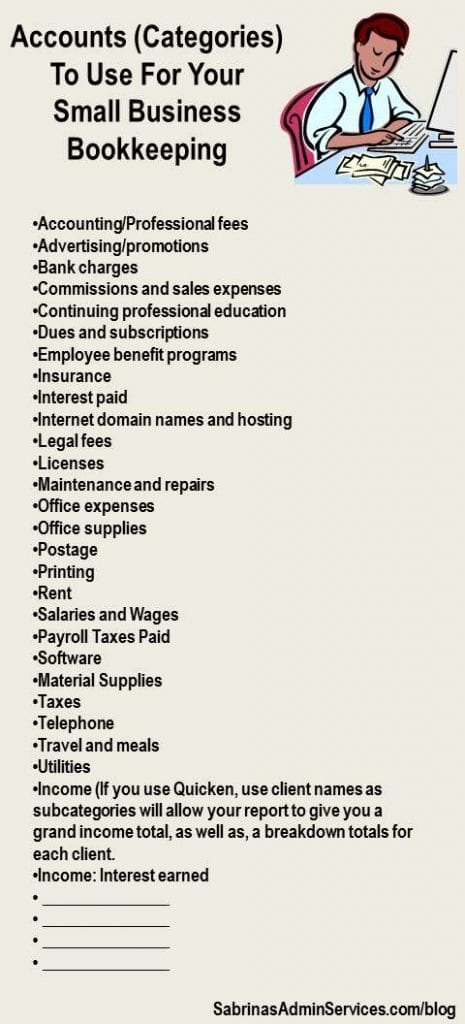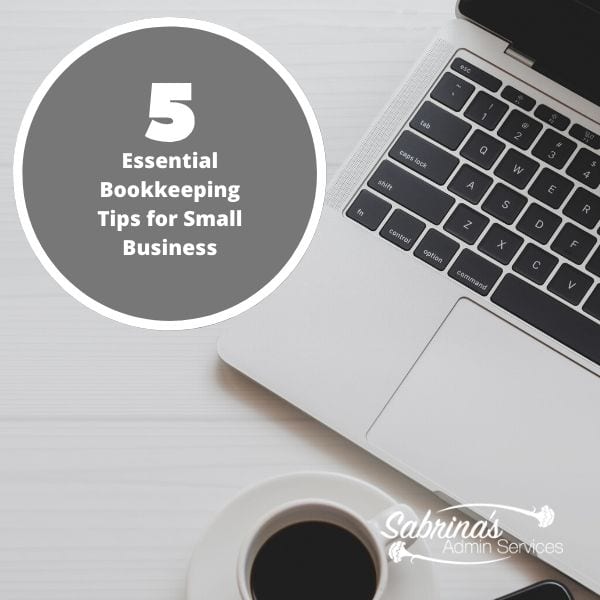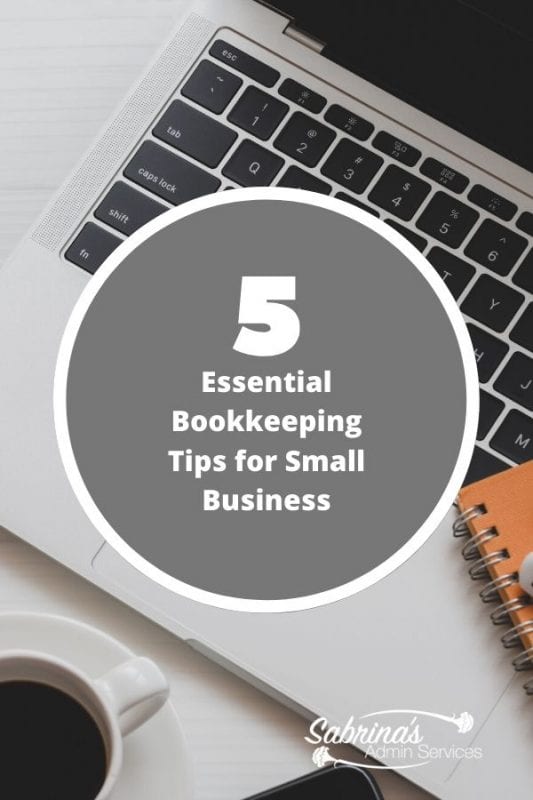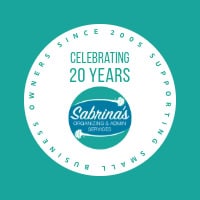Bookkeeping has many detailed steps. If you are not a detailed person, this may be a struggle to handle. I have many clients (affiliate) that when they started their business didn’t know how to manage all the details in bookkeeping. And, by the time I started working with them, we had to create systems on not only how to keep the books, but also the system of how to keep the paperwork so that I could get it into the books. This week, we will discuss the essential bookkeeping tips for a small business.
5 Tips
Below are the Five Bookkeeping Tips for small businesses and solopreneurs.
Keep your personal charges out of your business account.
Think of your business as a separate entity. You should minimize the number of personal charges in the account. If you do have to use your business for personal use, be sure to use a “Personal” account name and write in the memo section what it was exactly for. This way, your accountant will know the reason for the personal charge.
Use an accordion folder to organize your receipts.
Create categories like office supplies, office expense, Cost of Goods Sold (COGS), auto repairs, etc…
 Buy Now →
Buy Now → (affiliate)
Below is a list of accounts you can use to start. Some may apply and others do not. You do not need to add all of them. Just the ones that apply to your business.

Have a folder for each recurring client.
If you invoice your clients (affiliate) more often than once a month, have a folder for each client and place only their paid invoices in their folder. That way, at the end of the year, you can see all the invoices each client had for that year. Place them in order from oldest to newest, with the newest on top. Remove any cleared mobile checks from your clients (affiliate) and shred them. Write on the invoice the check number, the amount paid, and the date paid. You do not need the checks that cleared.
Now that you cleared up your paid invoices, it’s time to keep your books in order throughout the year.
Reconcile your bank and credit card accounts monthly.
Better yet, update your bank transactions weekly. This way, at the end of the month, reconciling your accounts won’t take you long. Print out the bank statement or have a folder on your computer to store these statements efficiently.
Please be sure to reconcile your credit card statements each month. If you have few charges, you can staple the receipts to each credit card statement so you have everything you need if your accountant or the IRS asks about them. Read more in our post: Benefits of Reconciling Your Credit Card Statements
Try an Accounting Software
Try using Quicken for Home Business, QuickBooks Online, or QuickBooks Pro to manage your bookkeeping. Since you can set up downloads, this will save on entering all the data. Be sure when you download the right account is selected. The software may not pull the correct account so check carefully before accepting what the bank says has cleared.
Some software may be more complicated, so try them before buying them. While they usually use the same terminology, some may place items in different areas that will be more complicated for some people to find.
Spend time organizing your receipts each month.
Schedule time to sort through your receipts. A great time to do this is after you reconcile your account. I place them in a bin, and then at the end of the month when I reconcile, I sort the receipts into the accordion folder (affiliate).
Some additional bookkeeping tips:
It is OK if you haven’t started at the beginning of your business. Just begin in January of the current year to have a complete year of transactions. Before the end of the year, you can catch up with just 4-5 hours each Saturday from now until the end of the year.
When you get into a habit of reconciling and keeping up with your transactions, it will be a breeze to manage.
Feel free to visit our other bookkeeping tips page.
How Long Should I Keep Business Records
7 Ways to Speed Up Bookkeeping Tasks for Startup Solopreneurs
How to Create a Well-Organized Small Business Bookkeeping Binder
I hope these bookkeeping tips for small business get you motivated to get your books in order. If you need help, please feel free to contact a professional. If you need a bookkeeper are want to keep your books clean and easy to read, feel free to contact me.
Below are some more related bookkeeping posts!









